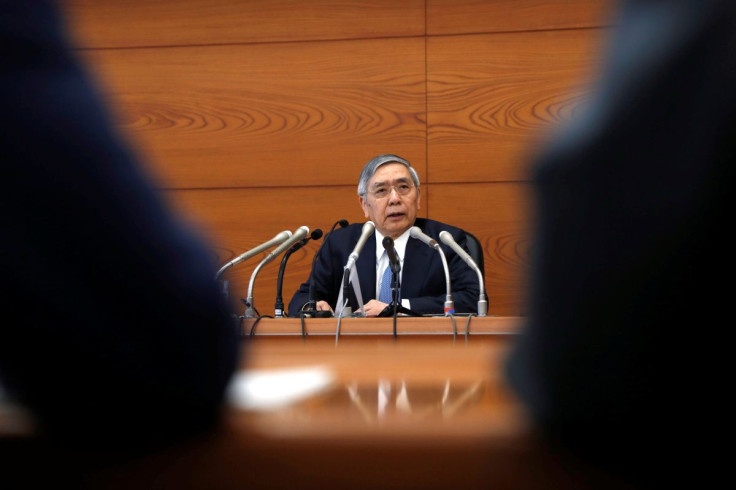BOJ's Kuroda Vows To Keep Easy Policy, Remain Dovish G7 Outlier

The Bank of Japan will keep interest rates ultra-low as inflation won't pick up much, governor Haruhiko Kuroda said on Friday, underscoring the view that Japan will remain an outlier among G7 nations eyeing monetary policy tightening.
Kuroda said he explained to his G7 counterparts that the BOJ will patiently stick to its powerful monetary easing to ensure the economy makes a sustained recovery from the pandemic.
"The chance of inflation accelerating more than we projected last month is slim," Kuroda told a news conference after attending the G7 finance leaders' gathering in Germany.
While it was natural for other G7 central banks to tighten monetary policy given surging inflation, there was "absolutely no change" to the BOJ's stance of maintaining an ultra-loose monetary policy, Kuroda said.
His remark came despite a G7 finance leaders' communique warning that central banks must calibrate the pace of monetary tightening with inflation reaching "levels not seen for decades."
Japan's core consumer inflation in April exceeded the central bank's 2% target for the first time in seven years due largely to the boost from rising fuel and food import costs.
Kuroda has repeatedly said such cost-push inflation would be temporary and won't lead to the kind of sustained achievement his price goal that justifies withdrawing stimulus.
In fresh quarterly forecasts produced last month, the BOJ projects core consumer inflation to hit 1.9% in the current fiscal year before moderating to 1.1% in fiscal 2023 and 2024.
Kuroda told Friday's briefing that he saw no need to follow in the footsteps of the European Central Bank, which is on the path toward ending negative interest rates.
"The recent rise in commodity prices would worsen Japan's terms of trade, so the current pick-up in inflation likely won't be sustained," Kuroda said.
Under a policy dubbed yield curve control, the BOJ sets its short-term interest rate target at -0.1% and that for 10-year bond yields around 0%.
© Copyright Thomson Reuters 2024. All rights reserved.




















